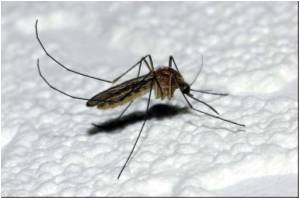
The recommendation promoting artemisinin use has been in place for adults since 2006, but was only amended for children this week, just ahead of the coming Monday's World Malaria Day.
This is because, "before, we have no evidence to recommend that artesunate should be used instead of quinine," said Peter Olumese, a WHO doctor.
"Now we have that evidence from studies in eight African countries. That's why we make this recommendation," he said, noting that 5,425 children under 15 years of age had been tested.
The studies had demonstrated that the mortality rates of children treated with artesunate was 22.5 percent lower than those who used quinine.
Artemisinin is also easier to administer. It can be given in just four minutes, through an intravenous or intramuscular injection, while quinine has to be administered three times a day through a slow intravenous drip that takes four hours.
Advertisement
But the group also urged the UN health agency to help concerned countries make the necessary changes, saying that it would be otherwise difficult to reach UN targets of eradicating malaria fatalities by 2015.
Advertisement
Source-AFP











